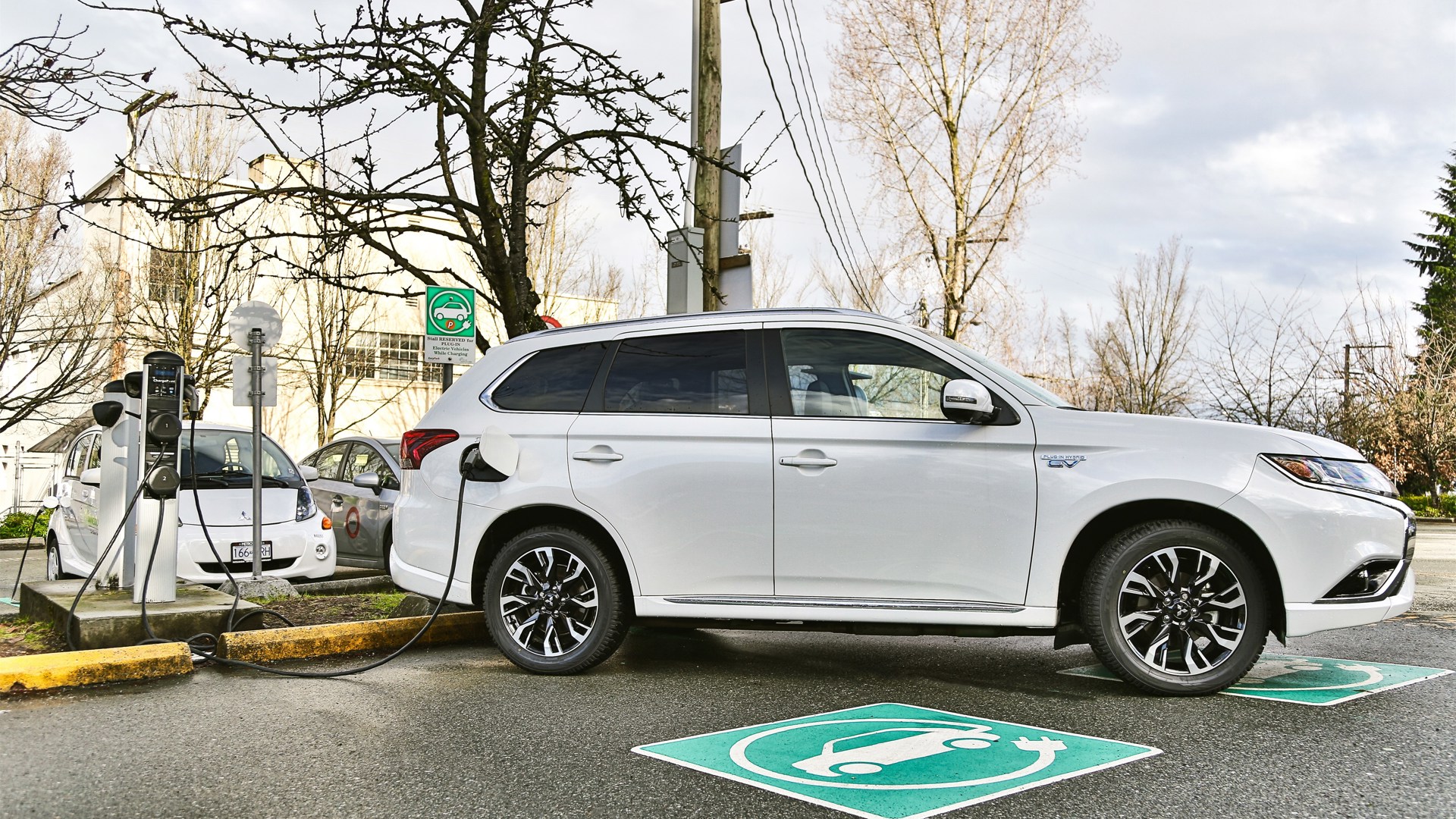Canada's federal government announced new incentives for buyers of plug-in and hydrogen-fueled vehicles as part of its latest budget in March, and released details of the plan today. The incentive program would apply to vehicles purchased on or after May 1, 2019, and proposes two rebate tiers based on the size of a plug-in vehicle's battery pack.
The announcement was made today by Minister of Transport Marc Garneau, the Minister of Environment and Climate Change Catherine McKenna, and the Minister of Innovation, Science and Economic Development Navdeep Bains, in the cities of Montreal, Vancouver and Toronto, respectively.
Together, they revealed the new plug-in and zero-emission vehicle incentives, along with funding in Budget 2019 to add more public charging and hydrogen refuelling stations.
Incentives start at $2,500 for plug-in vehicles with battery packs smaller than 15 kWh, and increase to $5,000 for those whose battery capacity is 15 kWh or greater.
The iZEV (Incentives for Zero Emissions Vehicles) rebate program is based on purchase price and the vehicle's seating capacity. For cars with six seats or fewer, the starting MSRP must be below $45,000, but the rebate applies to all trims optioned to a maximum of $55,000. Crossovers and vans with seven seats or more get the rebate if the MSRP is less than $55,000, but applies on trims optioned to $60,000.
Rebates apply to new-vehicle leases as well as purchases. For vehicles with sub-15 kWh batteries, incentives would add up to $625, $1,250, $1,875 and $2,500 on one-, two-, three- and four-year lease terms, respectively. Vehicles with larger batteries would be eligible for lease rebates double those amounts over the same durations.
You can see the list of currently eligible vehicles here. Note that the government's definition of a "new" vehicle is one that has less than 10,000 km on its odometer, as long as it has only been used as a dealer demonstrator. Therefore, the list of vehicles includes models as old as 2017. Obviously, the list will change as vehicles are discontinued and introduced.
The government's press release further clarifies that delivery/freight charges do not count toward vehicle cost limits, nor do extra-cost paint colours or accessories.
Canada's proposed new plug-in incentives are part of an ambitious plan to eliminate the sale of new internal combustion-powered vehicles by 2040. Between now and then, the government's goal is to reach a 10-percent zero-emissions threshold by 2025 and 30 percent by 2030. The Liberal government says those percentages will put 825,000 zero-emission vehicles on the road by 2025, 2.7 million by 2030 and 14 million by 2040.
According to Budget 2019, the plug-in purchase incentive program will cost $300 million over three years, starting in fiscal year 2019-2020.
Budget 2019 also contains $130 million over five years, "to deploy new recharging and refuelling stations in workplaces, public parking spots, commercial and multi-unit residential buildings and remote locations."
Another $5 million over five years will go toward working "with auto manufacturers to secure voluntary zero-emission vehicle sales targets to ensure that vehicle supply meets increased demand."
Finally, the Ministry of Finance's 2018 Fall Economic Statement promised $800 million to help car makers create Canadian jobs in zero-emission vehicle manufacturing.
Two Canadian provinces offer their own zero-emissions vehicle rebate programs. In B.C., buyers are eligible for up to $5,000 toward a plug-in car or $6,000 for a hydrogen fuel cell model; Quebec makes available rebates of up to $8,000 for plug-in or fuel cell vehicles. Ontario's Conservative Premier Doug Ford and his government recently scrapped that province's hybrid and electric vehicle rebate program.
Mitsubishi Canada has jumped on today's federal government program details by announcing a "bridge rebate" program in all provinces from now to May 1st, providing a rebate of $2,500 on all 2018 Outlander PHEVs in all provinces until the government's rebate kicks in to start next month. It's expected that this will help consumers who would have waited otherwise for the federal rebate in a couple weeks, when both 2019 and 2018 Outlander PHEV models will be eligible for the $2,500 rebate.

